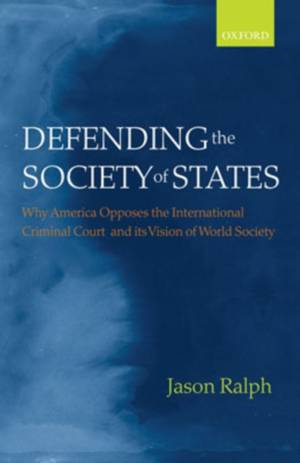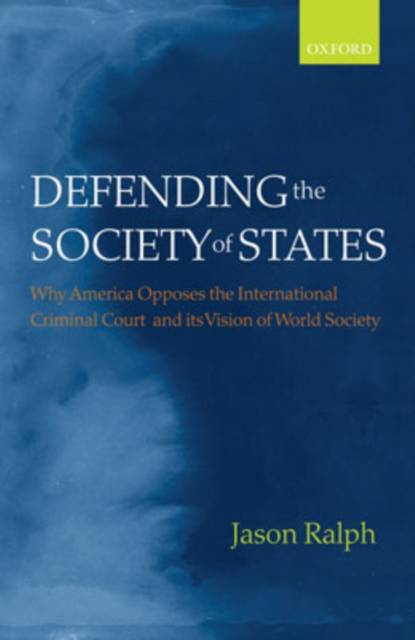
Je cadeautjes zeker op tijd in huis hebben voor de feestdagen? Kom langs in onze winkels en vind het perfecte geschenk!
- Afhalen na 1 uur in een winkel met voorraad
- Gratis thuislevering in België vanaf € 30
- Ruim aanbod met 7 miljoen producten
Je cadeautjes zeker op tijd in huis hebben voor de feestdagen? Kom langs in onze winkels en vind het perfecte geschenk!
- Afhalen na 1 uur in een winkel met voorraad
- Gratis thuislevering in België vanaf € 30
- Ruim aanbod met 7 miljoen producten
Zoeken
Defending the Society of States
Why America Opposes the International Criminal Court and Its Vision of World Society
Jason Ralph
Hardcover | Engels
€ 69,45
+ 138 punten
Omschrijving
This book is among the first to address the issues raised by the International Criminal Court (ICC) from an International Relations perspective. By clearly outlining a theoretical framework to interpret these issues, Ralph makes a significant contribution to the English School's study of international society. More specifically, he offers a concise definition of "world society" and thus helps to resolve a longstanding problem in international theory. This groundbreaking conceptual work is supported by an in-depth empirical analysis of American opposition to the ICC. Ralph goes beyond the familiar arguments related to national interests and argues that the Court has exposed the extent to which American notions of accountability are tied to the nation-state. Where other democracies are willing to renegotiate their social contract because they see themselves as part of world society, the US protects its particular contract with "the people" because it offers a means of distinguishing America and its democracy from the rest of the world. This "sovereigntist", or more accurately "Americanist", influence is further illustrated in chapters on the sources of law, universal jurisdiction, transatlantic relations and US policy on international humanitarian law in the war on terror. The book concludes by evoking E.H. Carr's criticism of those great powers who claim that a harmony exists between their particular interests and those of wider society. It also recalls his argument that great powers sometimes need to compromise and in this context, Ralph argues that support for the ICC is a more effective means of fulfilling America's purpose and a less costly sacrifice than that demanded by the "Americanist" policy of nation-building.
Specificaties
Betrokkenen
- Auteur(s):
- Uitgeverij:
Inhoud
- Aantal bladzijden:
- 256
- Taal:
- Engels
Eigenschappen
- Productcode (EAN):
- 9780199214310
- Verschijningsdatum:
- 19/07/2007
- Uitvoering:
- Hardcover
- Formaat:
- Genaaid
- Afmetingen:
- 156 mm x 234 mm
- Gewicht:
- 535 g

Alleen bij Standaard Boekhandel
+ 138 punten op je klantenkaart van Standaard Boekhandel
Beoordelingen
We publiceren alleen reviews die voldoen aan de voorwaarden voor reviews. Bekijk onze voorwaarden voor reviews.









